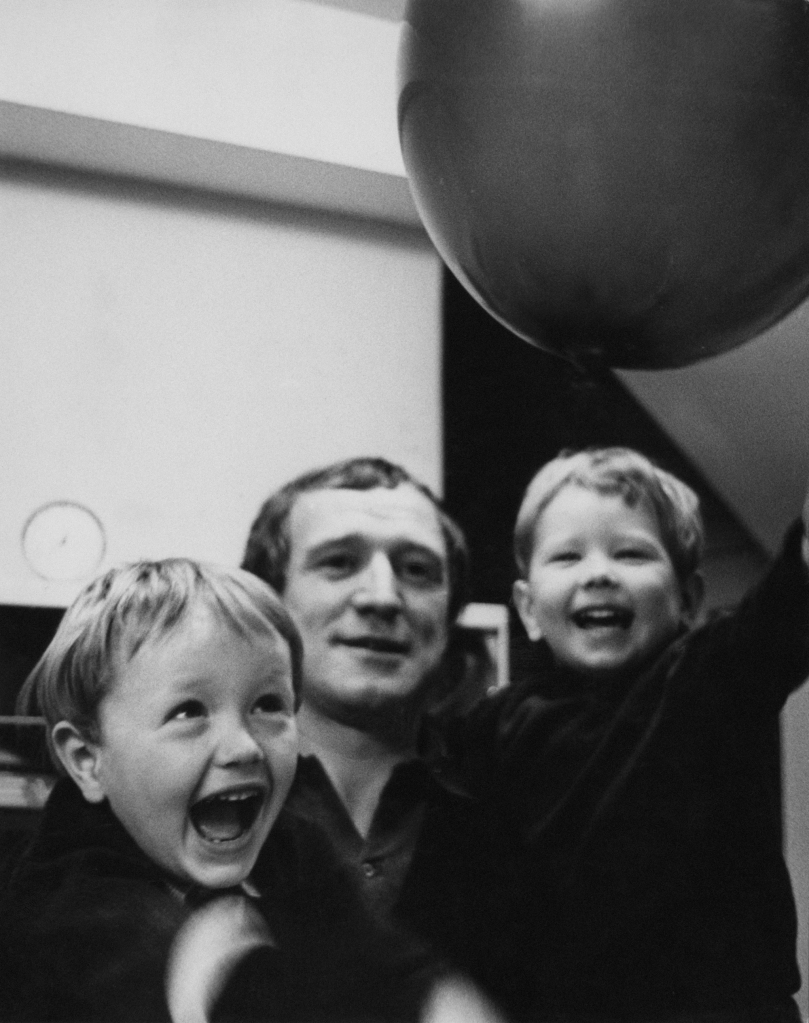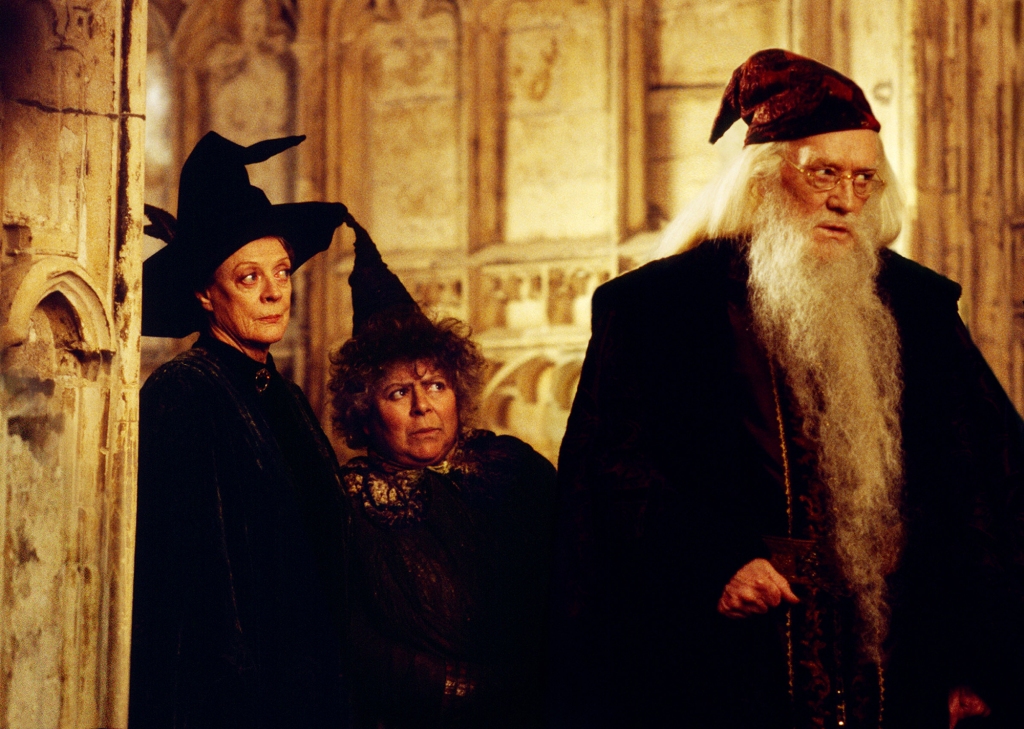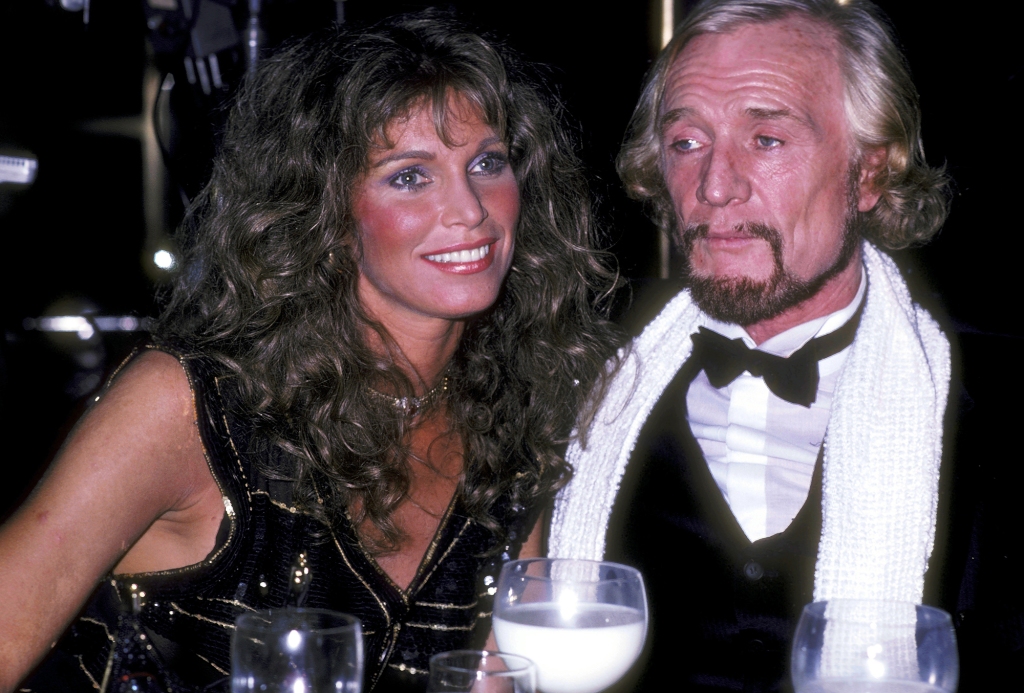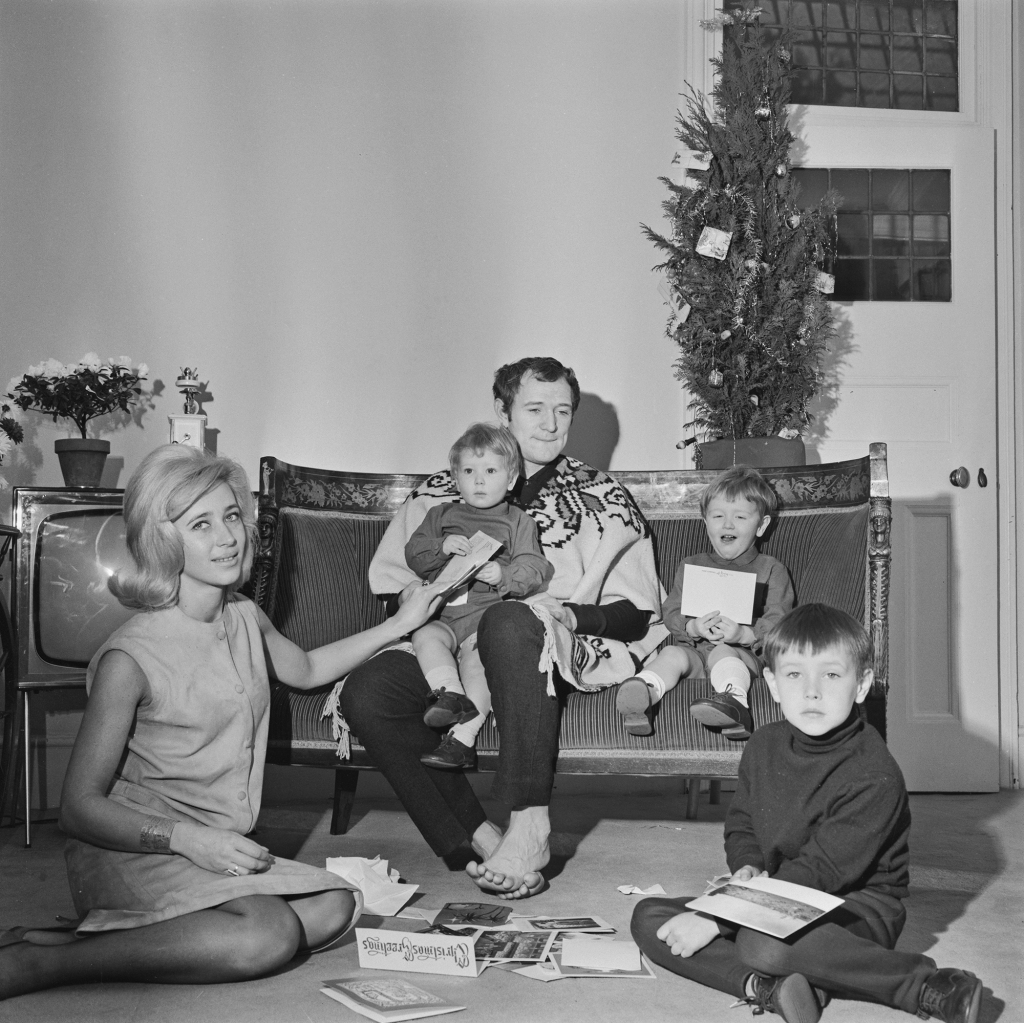Jared Harris on why dad Richard ‘never apologized’ for hellraising
“The Ghost of Richard Harris,” directed by Adrian Sibley, takes a deep dive into the life of the hard-living two-time Oscar nominee — still identified more for his public carousing (drinking, drugs, women) than for his prodigious talent.
“That part of him, that hell-raising image, had overcome all of his other achievements and his reputation, in a way that hasn’t happened to [Richard] Burton or [Peter] O’Toole,” his son, veteran actor Jared Harris, told The Post.
“All I can come up with is [that] Dad never apologized for it and the other two did … and I think, in some way, people felt you can’t have it both ways.”
The Irish-born Richard Harris (known as “Dickie Harris” in his native country), snared Oscar nominations for “This Sporting Life” (1963) and “The Field” (1991) — and famously crooned Jimmy Webb’s “MacArthur Park,” for which he garnered a 1969 Grammy nomination. He originated the role of Dumbledore in “Harry Potter and the Philosopher’s Stone” and “Harry Potter and the Chamber of Secrets.”
Harris died in 2002 at the age of 72 from Hodgkin’s disease.
“The Ghost of Richard Harris,” premiering May 9 on BritBox, features interviews with Jared Harris, 61 (“Mad Men,” “Chernobyl”), his brothers Damian, 64 and Jamie, 59, and Russell Crowe, Vanessa Redgrave, Stephen Rea, Malachy McCourt, Dick Cavett and acclaimed songwriter Phil Coulter, among others.
The documentary, replete with archival footage and photographs of Harris dating back to his childhood in Ireland, uses his unapologetic approach to life — “I drank because I loved it,” “I’m a jockey on this wild horse,” “I’m not running away from anything” — as a jumping-off point to delve into what drove him to excess.

“I do think it’s true that he was running away from everything,” Jared said. “If you read my mother’s [Elizabeth Rees-Williams] autobiography … Dad was weirdly obsessed with death. First of all, his two elder sisters both died young, then there was a war on and people were dying.
“Her opinion was that, in some way, it made him feel he had to live every moment in life — that nothing is guaranteed for anybody.”
“Ghost” also takes an unflinching look at the actor’s very public indulgences that kept him in the headlines for all the wrong reasons throughout his life.
“Whatever he was into he was into without reservation or hesitation,” Jared said. “He would describe it as being ‘obsessive’ about it. When we were on holidays, after four days with everyone he’d get a little bit fed up with the family dynamic, if you like, and he’d go off to his room … he’d bring a suitcase full of books and he would go up to his room and read books for three or four days.
“That came from the two years he spent [starting at the age of 19] getting over TB,” he said. “That was his education … when he got sick had to sort of teach himself about literature — and that came from reading.”


“Ghost” also examines the dichotomy of Harris’ personality — someone who craved privacy but lived his life as a very open book.
“He was a very private person, which is bizarre because he loved the public sphere so much,” Jared said. “He enjoyed the attention he would get in public. I remember many times we’d be in a restaurant and he’d start telling a story and notice that the table next to him had stopped talking and was eavesdropping.
“So he’d push his chair back a little bit to give them permission to join in and he’d bring them into the conversation,” he said. “Then he’d notice that the people on the other side were listening and he’s push his chair back a little further.
“Eventually the whole conversation in the restaurant had stopped and everybody was listening to his story — and when he hit the punchline there was uproarious laughter and applause.”

There’s a touching scene near the end of the documentary when Jared, Damian and Jamie are going through their father’s personal belongings and Jamie opens one of his journals — which contains just one single entry that’s shocking in its admissions of guilt and self-reflection.
“That wasn’t staged,” Jared said. “That really happened. Yeah, that was a shock.
“In moments like that you feel sad that you weren’t able to help him through times like that,” he said. “He didn’t share his thoughts with you so that you could put your arm around him and let him know that, if he had moments where he felt like he failed as a parent, you could tell him he’d done a good job, you know?
“The whole point [of the documentary] is that there’s much more to him than the tabloid headlines,” he said.
“Come and find out.”
Read the full article Here


